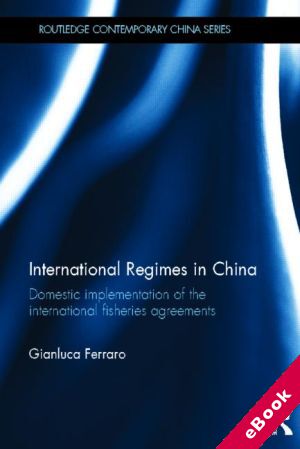We will be closed from 5pm Thursday 17th April for the Easter Bank Holidays, re-opening at 8.30am on Tuesday 22nd April. Any orders placed during this period will be processed when we re-open.

The device(s) you use to access the eBook content must be authorized with an Adobe ID before you download the product otherwise it will fail to register correctly.
For further information see https://www.wildy.com/ebook-formats
Once the order is confirmed an automated e-mail will be sent to you to allow you to download the eBook.
All eBooks are supplied firm sale and cannot be returned. If you believe there is a fault with your eBook then contact us on ebooks@wildy.com and we will help in resolving the issue. This does not affect your statutory rights.
According to the Food and Agriculture Organization (FAO) of the United Nations, more than 80% of world's fish stocks are fully exploited, over-exploited, depleted, or recovering from depletion. Although several international agreements have promoted more responsible fisheries, coastal states have usually maintained national policies that enable higher harvest levels rather than greater conservation of fish stocks, and international agreements for more responsible fisheries have generally experienced a weak domestic implementation. Among the major coastal fishing states, China constitutes the largest fish producer and main exporter in the world, and therefore presents a fascinating case-study for the domestic implementation of international fisheries agreements.
This book investigates the degree to which China has complied with the international agreements it has signed, and asks why it is failing to meet expectations. Crucially, it calls for greater emphasis on the political, rather than technical, issues involved in the implementation of international regimes. In turn, it examines how understanding the case of China can help us to develop solutions for improved international compliance in the future. Providing an improved understanding of the implementation of international regimes, alongside an in-depth study of China's political system, policy-making and compliance, this book will be of great interest to students and scholars of Chinese studies, international relations, public policy, and international law and environmental studies. It will also be useful for policy makers working in the fields of environmental regulation and fisheries management.